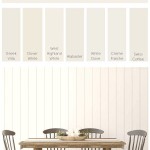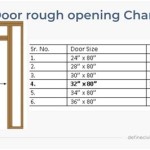What Is the Best Sealant for Interior Windows?
When it comes to sealing interior windows, there are a few key factors to consider to ensure a successful and long-lasting seal. Choosing the right sealant is crucial to prevent air and water infiltration, improve energy efficiency, and maintain a comfortable indoor environment. Here's a comprehensive guide to help you determine the best sealant for your interior window needs:
Understanding Sealant Types
There are two main types of sealants commonly used for interior windows: silicone-based and polyurethane-based. Each type has its own unique properties and applications:
Silicone-based sealants: These sealants are highly flexible, durable, and resistant to UV radiation and extreme temperatures. They are ideal for sealing gaps and cracks around windows, as well as for sealing joints between different materials, such as glass and wood.
Polyurethane-based sealants: These sealants are known for their excellent adhesion to a wide range of surfaces, including wood, metal, and plastic. They are also highly durable and resistant to moisture and chemicals. However, they may not be as flexible as silicone-based sealants.
Choosing the Right Sealant
When selecting a sealant for interior windows, consider the following factors:
- Window material: Different types of window materials, such as wood, metal, or vinyl, may require specific sealants for optimal adhesion.
- Joint size: The width and depth of the joint you need to seal will determine the appropriate sealant type and application method.
- Environmental conditions: Factors such as temperature, humidity, and exposure to UV radiation can affect the sealant's performance over time.
Application Tips
To ensure a successful seal, follow these application tips:
- Prepare the surface: Clean and dry the surfaces you intend to seal, removing any dirt, debris, or old sealant.
- Apply backing material: Use foam backer rod or weatherstripping to fill large gaps before applying sealant.
- Apply sealant: Use a caulk gun to apply a continuous bead of sealant along the joint, ensuring it fills the gap completely.
- Tool the sealant: Use a sealant tool or your finger to smooth out the sealant and remove any excess.
- Allow to cure: Refer to the sealant manufacturer's instructions for the recommended curing time before exposing the seal to moisture or heavy use.
Recommended Sealants
Here are some recommended sealants for interior window applications:
- GE Silicone II Window & Door Sealant
- Dow Corning 795 Silicone Sealant
- DAP Alex Plus Window & Door Caulk
- Loctite Titebond Polyurethane Construction Adhesive
- Sika Sikasil-118 Polyurethane Sealant
Conclusion
Choosing the best sealant for interior windows requires consideration of the window material, joint size, environmental conditions, and application techniques. By following the guidelines outlined above, you can achieve a durable and effective seal that will enhance the performance and longevity of your windows while improving energy efficiency and indoor comfort.

The Importance Of Using Door And Window Sealer Decor Express Ltd

Diy Guide To Sealing Around Window Frames Internally Or Externally

How To Caulk Your Windows Inside House

Interior Window Seal Need Replacing Here S How To Diy It Claire Douglas Styling

Window Caulking Seal Windows For Winter In 3 Steps Family Handyman

How To Caulk Windows Indoor And Outdoor S

How To Caulk Windows For Winter Eikenhout Inc

Does Caulking Windows Save Energy

How To Seal A Window From The Inside Burano Doors

Your Guide To The Best Sealant For Upvc Windows Outside Top Window And Door Sealants Explained
Related Posts








